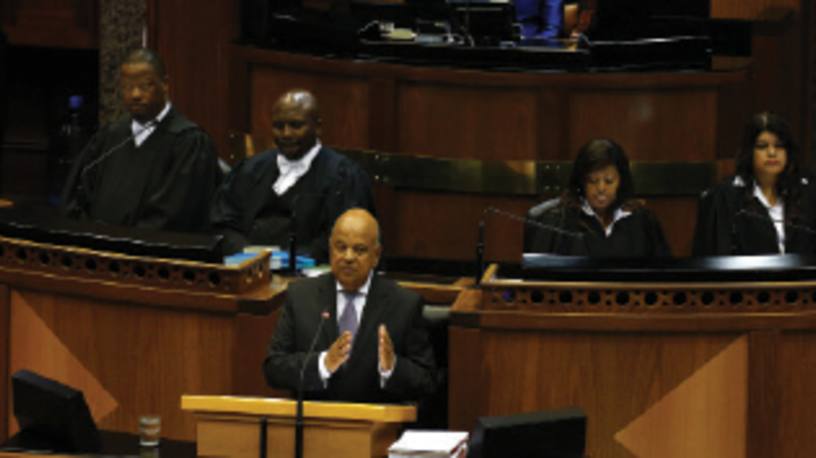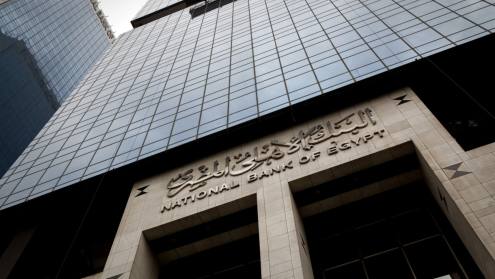The past few years have not been kind to the so-called Brics (Brazil, Russia, India, China and South Africa) countries. As global economic growth has cooled and commodity prices have slumped, the fortunes of these five economies have largely fallen with them. South Africa, the group’s newest member, has been hit particularly hard despite its relatively diverse economy.
The International Monetary Fund (IMF) expects South Africa's gross domestic product (GDP) growth of about 0.6% in 2016, before increasing to 1.2% in 2017. These numbers are a far cry from the IMF’s projections for the sub-Saharan Africa region over the same period, which sit at 4% and 4.7% respectively.
“This is a fresh low point after the 2009 recession. Economic growth will be significantly below population growth of near 2%, implying another year of shrinking per capita incomes,” says Goolam Ballim, chief economist and head of research at Standard Bank, South Africa’s largest lender by total assets and Tier 1 capital.
Political difficulties
Today, South Africa is suffering from a surplus of systemic challenges. In part, these problems are a consequence of difficulties at both a global and regional level. But they also reflect a number of domestic shortcomings, largely linked to what many are claiming is poor governance. Indeed, the ruling African National Congress (ANC), under the leadership of president Jacob Zuma, seems to lurch from one disaster to the next.
Already dogged by allegations of corruption and the misuse of public funds, the president was roundly criticsed for sacking his respected minister of finance, Nhlanhla Nene, in December 2015 and appointing two different successors in a matter of days. The so-called ‘9-12’ incident plunged the rand to its weakest ever level against the dollar, while the Johannesburg Stock Exchange’s All Share Index fell by 1.9% in response. Meanwhile, Mr Zuma survived a parliamentary impeachment vote in April over accusations of ‘serious misconduct’.
These political difficulties are mirrored in South Africa’s sluggish process of structural reform. Despite developing a credible National Development Plan, detailing a well-regarded package of reforms, little has been done in terms of enacting hard policy choices. Poorly run state-owned enterprises still have a stranglehold over parts of the economy, leading to expensive government bail-outs in the case of South African Airways, and crippling power shortages in the case of state electricty provider Eskom.
“South Africa’s state-owned enterprises, which should be a catalyst for growth, are actually holding back the economy because of the way that they are performing,” says Cas Coovadia, managing director of the Banking Assocation South Africa.
Business confidence remains subdued in the face of policy uncertainty and deteriorating labour relations. The Mineral Resources Petroleum Development Act amendment bill, which has been held up in parliament for some time over a number of contentious clauses, has clouded the outlook for South Africa’s extractive industries. Similarly, ongoing legal challenges to the country’s Mining Charter, which outlines the requirements to be fulfilled regarding black ownership rules, have compounded this sense of uncertainty.
“South Africa has been retarded by an ineffectual, self-serving political leadership. In recent years, this leadership has contributed to deep-seated institutional erosion that has impaired the investment climate,” says Mr Ballim.
Drought impact
Meanwhile, South Africa is enduring one of its worst droughts in living memory. This has devastated South Africa’s domestic production of key crops, including maize and grains, leaving it reliant on foreign imports. Though agriculture represents less than 4% of both GDP and employment in the country, as well as 11% of exports, according to ratings agency Moody’s, the knock-on effects have been severe.
The drought has hit South Africa as exchange rate volatility has come to the fore. These conditions have stoked inflation, with the price of basic goods, including food and fuel, hitting lower income consumers the hardest. In response, the South African Reserve Bank has been forced to hike interest rates twice in 2016, further dampening business confidence in an economy that is already on the rails.
“Increasing fuel and food prices have hit low income earners particularly hard. This is exacerbated by the number of liquidations among small businesses that has increased in recent months,” says Andre Du Plessis, chief financial officer at Capitec Bank, the country’s sixth largest lender by total assets.
Without serious and urgent reform these difficulties could be compounded in June when ratings agency Standard & Poor’s reviews the country for a potential downgrade to junk status. The implications of a downgrade, given that the country’s economy is already on the rocks, are a prevailing concern for private businesses and the banking sector alike.
“For the banking sector as a whole, concerns around the sovereign downgrade and the impact that it could have on economic activity, revenues, operating costs, cost of risk and the cost of capital are looming large,” says Sim Tshabalala, chief executive of Standard Bank.
South Africa strikes back
But South Africa is not letting a good crisis go to waste. After the backlash against the removal of Mr Nene in December, and the subsequent appointment of little-known backbencher David van Rooyen, Mr Zuma appointed Pravin Gordhan as minister of finance, a position he last held from 2009 to 2014. Widely respected by the private sector, Mr Gordhan has been quick to engage with international investors and enforce a more fiscally prudent budget for 2016.
“Clearly, fiscal prudence is an important element of economic growth along with the stability that it provides. The budget statement put together in February 2016 accelerated fiscal consolidation and was widely welcomed by the private sector,” says Mike Brown, chief executive of Nedbank.
In March 2016, the finance ministry, in partnership with a number of leading figures from South Africa’s private sector, embarked on a roadshow to London, New York and Boston to open a dialogue with international investors. This effort and others points to a developing relationship between the government, the private sector and trade unions as they seek to mobilise their collective resources in support of the economy.
“Notably, the crisis of December 2015 has ushered in a fledgling social compact that has long eluded South Africa and one in which the private sector and and sections of the government are at the vanguard,” says Mr Ballim.
Meanwhile, a constitutional court decision, which ruled that Mr Zuma had failed to uphold the constitution by ignoring an order to repay public funds used to renovate his personal residence, has instilled renewed confidence in the country’s institutions.
“The constitutional court ruling that the president acted unconstitutionally in not acceding to the report of the public protector was a big positive. It shows that our institutions are strong and credible,” says Mr Coovadia at the the Banking Assocation of South Africa.
Tricky period
The coming months will be important for South Africa as both the government and private sector negotiate the hurdles around a potential sovereign downgrade. Though cautious about the country’s near-term prospects, most observers are upbeat about the changes to South Africa’s political economy that are currently under way.
“I harbour a mounting sense of optimism that an inflection point is unfolding. The ANC is on notice that its legitimacy in parliament, on the streets and in intellectual life is in question,” says Mr Ballim.
With the rand showing signs of stabilising after reaching a four-month high against the dollar in early April, and the government successfully issuing a $1.25bn 10-year bond on the international debt markets in that period, some room for optimisim is emerging. In addition, the secondary listing of Anheuser-Busch InBev, the world’s biggest brewer, on the Johannesburg Stock Exchange in January was seen as a big vote of confidence in the country despite its recent troubles.
On its side, South Africa has an economy boasting long term promise with strong fundamentals. It must now find a way to navigate its current challenges to translate this potential into meaningful and sustainable economic growth. Doing so will not be easy, and the country’s immediate outlook remains far from certain. But if the private sector, government and other players can remain united behind a common cause, there is every chance that the turnaround may come sooner than expected.












